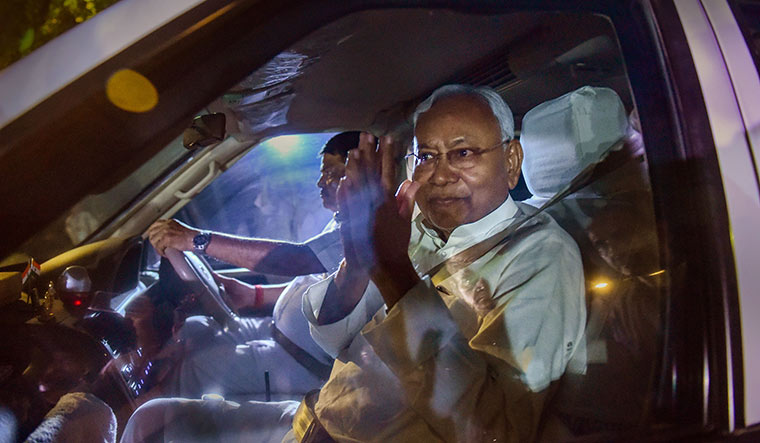Bihar Chief Minister Nitish Kumar has proposed to increase reservation for Scheduled Castes, Scheduled Tribes and Other Backward Classes in government jobs and education to 65 per cent.
Since the proposal does not include the central government’s 10 per cent reservation for individuals from Economically Weaker Sections, the total reservation will now go up to 75 per cent. The Supreme Court has capped the state quotas at 50 per cent.
Speaking in the state assembly on Tuesday, Nitish hints at bringing in a legislation to this effect in the ongoing session itself.
“The quota for SCs and STs together stands at 17 per cent. It should be raised to 22 per cent. Likewise, the reservation for OBCs should also be hiked from the current 30 per cent to 43 per cent,” the chief minister said.
OBCs, including the extremely backward classes, accounted for a whopping 63 per cent of the state's total population, as per the latest caste survey. SCs and STs together accounted for slightly over 21 per cent.
Earlier, a detailed report of the caste survey was tabled in the assembly. As per the report, more than a third of families in Bihar were living in poverty, making do with a monthly income of Rs 6,000 or less.
The state was home to about 2.97 crore families, out of which more than 94 lakhs (34.13 per cent) were poor.
The JD(U)-RJD government held the caste census in the state after the Centre’s refusal to do such an exercise. Union Home Minister Amit Shah had recently taken a swipe at Nitish, saying the state government was deliberately showing inflated numbers of Muslims and Yadavs in the state's caste survey as part of its "appeasement politics".
Nitish, however, said those were bogus allegations and must be avoided. He pointed out that even his own caste (Kurmis) turned out to be a smaller percentage of the total population than what was believed.
The chief minister reiterated his demand for the grant of special category status to Bihar and said his government would send a copy of the report to the Centre, seeking extra assistance for undertaking measures targeted at vulnerable sections of the society.



